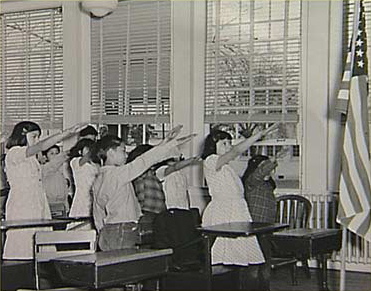so i'm sure a lot of you have heard about the texas education board pushing to revise the social studies curriculum and schoolbooks to paint the country's history is a more conservative light, namely shifting focus from minority-rights groups and the like to more conservative movements and contesting the establishment clause of the first amendment.
chilling, isn't it?
there is some humor in it, though, like Cynthia Dunbar (more like dumbar xdddd) "referring to the united states and its history as a 'Christian land governed by Christian principles'...'I believe no one can read the history of our country without realizing that the Good Book and the spirit of the Saviour have from the beginning been our guiding geniuses'"
tell me, why are people that might as well admit that they know nothing about US history deciding what to teach about it?
oh u, texas
chilling, isn't it?
there is some humor in it, though, like Cynthia Dunbar (more like dumbar xdddd) "referring to the united states and its history as a 'Christian land governed by Christian principles'...'I believe no one can read the history of our country without realizing that the Good Book and the spirit of the Saviour have from the beginning been our guiding geniuses'"
tell me, why are people that might as well admit that they know nothing about US history deciding what to teach about it?
oh u, texas
